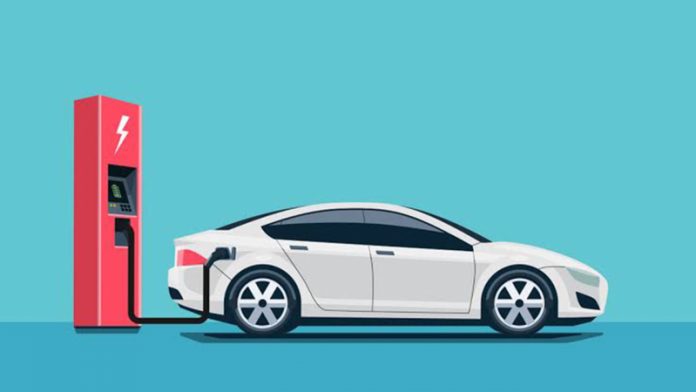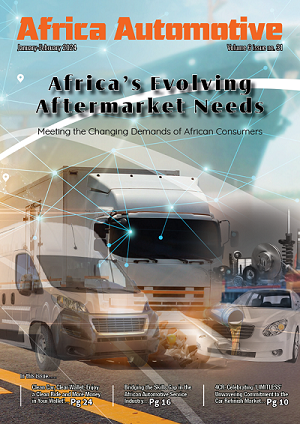Stakeholders and local automakers are championing the adoption of Electric Vehicles (EVs) usage in Nigeria as an alternative to petrol-driven vehicles to cushion the effects of fuel subsidy removal on citizens as well as promote clean energy.
At the event, U.S. Undersecretary of Commerce for International Trade, Marisa Lago said not only are they committed to combating the climate crisis and view EVs as critical technologies to facilitate the clean energy transition, she said more importantly, new jobs will be created. Revealing that U.S. companies are eager to find opportunities to expand business relationships with Nigerian counterparts, she added that transitioning to EVs present a tremendous opportunity to drive innovation in the automotive sector and provide good-paying jobs for Nigerians, while simultaneously addressing climate change and reducing dependence on fossil fuels.
She went on to reveal that supportive infrastructure is crucial for widespread adoption of EVs. “The availability of charging stations is a fundamental aspect of the enabling environment for an EV industry to thrive. But, there is a chicken-and-egg conundrum since companies are not likely to invest in charging infrastructure until there’s a critical mass of EV drivers. Also, individuals will be reluctant to buy EVs until there is a reasonable recharging infrastructure.”
Also pointing out that the cost of EVs, which is still relatively high compared to conventional vehicles, remains a barrier, and wondered if the costs could be reduced through local manufacturing, targeted investment in R&D or collaborations with industry leaders from around the world to achieve economies of scale.
“Also, to attract both domestic and foreign players in the sector, it will be critical to have a supportive regulatory framework of consistent policies, standards and regulations that are aligned with international best practices that encourage investment and innovation. In addition to advancing EV technology, we must equip the workforce with the education and skills necessary to support the growth of the industry. A skilled workforce can fill the employment opportunities generated by the growth of the sector, positioning Nigeria as a regional hub for manufacturing, maintenance and technology development.”
Head of Corporate Communications, Innoson Group, Cornel Osigwe, said they paused producing EVs because of the unavailability of batteries, which he said remain very expensive.
He, however, said companies could come together to produce batteries locally since all the raw materials are available in Nigeria. Osigwe said the government needs to get involved in battery production and provide an enabling environment for the market to thrive.
Scania Representative, Abimbola Adekoya, said a lot is happening in the various segments of the EV value chain in Nigeria. “We need to be deliberate in recognising and relying on strengths, collaborating and position as a block to strongly influence policy shaping in a manner that will positively impact the EV space in Nigeria.
An attendee present stated that some people have argued that the country suffers from poor power but wondered how many times EV users need a high-power charge. “I have been using an EV for a decade and I’ve only had a high-power charge 12 times in that period. The solutions are there. A four-hour charge will take you over 300 km.”
Senior Vice President of Corporate Services, Oando Clean Energy, Alero Balogun, said the cost of financing EVs would be a challenge but investor finance is available.
Chairman, Codes and Standards Committee, Nigerian Institution of Mechanical Engineers (NIMech), Seun Faluyi, said it is more practical to expect that mass adoption of EVs will be more driven by cost avoidance rather than policies in Nigeria and lowering the cost of development and deployment of EV production and infrastructure will be a key success factor. He said the most likely starting point where impact and progress can be made will be the first mile-last mile segment of the transport industry in urban centres, which includes motorcycles, tricycles and mini-buses.
The EV market is at the intersection of the transportation, automobile and power industries. Standardisation for charging, regardless of geographical location or electricity distribution company connected, will need to be talked about in terms of rates, measuring and monitoring charging activity, among others.
Chief Executive Officer/Founder, SWAP, Seyi Ògúntunde said though the major issue is cost, as drivers don’t have the capital to purchase brand new vehicles, possibilities abound and people have started embracing it. “We set up a mini charging station around Berger where we have most of the drivers. They pick up the charged batteries in the morning and return it at night. The adoption rate has increased, because it’s easier for them to drive and more cost-effective. Now, most of them are coming to us, asking to convert their vehicles because they’re saving money on fuel and maintenance.”
Head Mobility, Renewable Energy and Mobility, Sterling Bank Plc, Akin Akingbogun, said EVs are driven by three separate sectors of the economy: automobile, road infrastructure and energy/power. He said they would focus on partnerships that would convert ICE vehicles to EVs and stressed the need for the availability of charging stations across the country. He added that a major concern with EVs is standards. “How do we ensure standards are met and kept across the board? Standardisation is very important because users should be able to move across the country and region and be able to charge anywhere.”
President of the Renewable Energy Association of Nigeria, Ayo Ademilua, said they intend to partner with stakeholders to roll out charging stations across the country, especially standalone charging stations. “We know affordability is a major issue so we are proposing pay-as-you-go platforms. We want the vehicles to be given out on leases while users pay monthly.
It will also have an app that shows charging stations in real-time so that users know where next they can charge.” He revealed that many players are launching two and three wheelers later this year and need to partner.
At the end, the ideas put forward for the hackathon include a pay-as-you-go platform for EV cars, charging station location apps, capacity building platform, battery design, fintech financing solution for the full purchase of EVs, database for the EV space, tech solution to manage driver behaviour and market education.
Others include IOT on devices for ‘state of charge’, rideshare, charger stations, curriculum development for schools to support ecosystem, tracking energy assets, combining on-grid and off-grid solutions, a pricing model that works, leveraging already existing energy distribution networks as electricity charging stations and standard regulation framework development.
By Benjamin Alade and Tobi Awodipe





